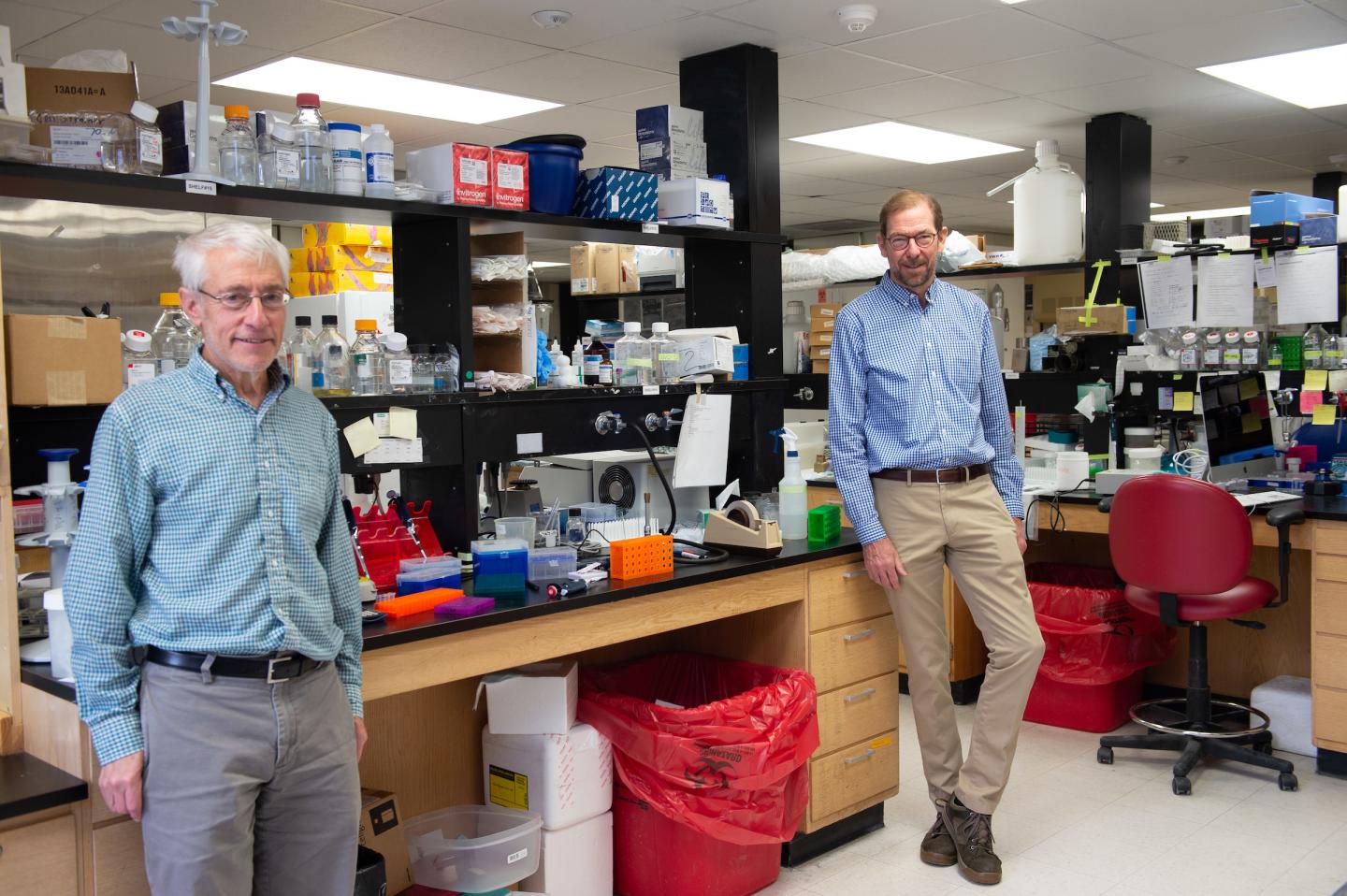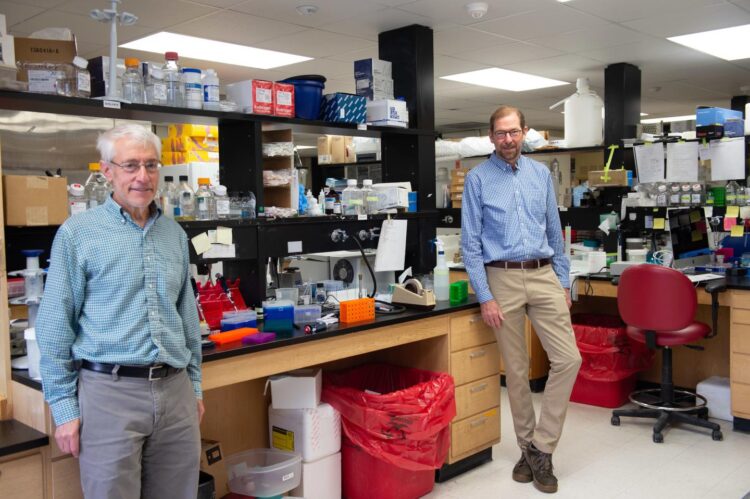
Credit: Susan McClellen, University of Iowa Health Care Marketing and Communications
A repurposed mouse model can develop symptoms of both severe COVID-19 (lung damage, blood clots, abnormal blood vessels, and death) and also of milder disease, including loss of the sense of smell, according to a recent University of Iowa study published in Nature.
The study also showed that convalescent plasma from a patient who had recovered from COVID-19 protected the mice against lethal disease. The findings suggest the K18-hACE2 mouse model is useful for understanding a spectrum of COVID-19 disease symptoms, and for developing and testing new treatments.
When COVID-19 started spreading across the world earlier this year, UI researchers Stanley Perlman, MD, PhD, and Paul McCray, MD, realized that a mouse model they had created a decade earlier to study SARS might be an invaluable tool for understanding the concerning new disease and for testing potential treatments.
In the new study, Perlman, McCray, and colleagues present a detailed characterization of the effects of SARS-CoV-2 infection in these K18-hACE2 mice, which are now readily available from Jackson Laboratories.
Infection with a high dose of the virus produced many of the signs of illness seen in people with severe COVID-19, including severe lung damage, abnormalities in blood vessels known as vasculitis, blood clots, and death.
“The mouse develops pretty robust lung disease that is on the severe end of the spectrum. That gives us an opportunity to investigate what’s going on with lung disease with COVID,” says McCray, UI professor of pediatrics-pulmonology, and of microbiology and immunology, and the Roy J. Carver Chair in Pulmonary Research. “Also, people who die from this disease often have vasculitis, which is unusual for coronavirus infections, and we found that the mice may develop signs of vasculitis in the liver, lung, and brain.”
One particularly interesting finding was that the infected mice lost their sense of smell. This effect, also known as anosmia, is seen in a large proportion of people who get COVID-19, but is not well understood.
The study showed that K18-hACE2 mice treated with convalescent plasma and then infected with SARS-CoV-2 infection did not succumb to the infection but, like many infected patients with mild disease, had loss of smell as a major symptom.
Further investigation of the cells in the nasal passage suggested that the anosmia results from initial infection and damage to a type of cell that helps to support the function of neighboring sensory neurons that detect smell.
“The loss of sense of smell or taste occurs in a large proportion of patients who have COVID-19, whether they’re really sick or if that’s the only sign of illness they have. Most people recover their sense of smell pretty quickly, but some don’t,” says Perlman, UI professor of pediatrics, and of microbiology and immunology, and the Mark Stinski Chair in Virology. “This mouse model opens up the possibility of learning more about how that happens, and if we could understand the mechanisms of why people lose their sense of smell, this will help us treat people.”
###
In addition to Perlman and McCray, the research team included scientists from the Departments of Pathology, and Microbiology and Immunology, and the Stead Family Department of Pediatrics in the UI Carver College of Medicine.
The study was funded in part by grants from the National Institutes of Health and the Cystic Fibrosis Foundation.
Media Contact
Jennifer Brown
[email protected]
Original Source
http://medicine.
Related Journal Article
http://dx.





